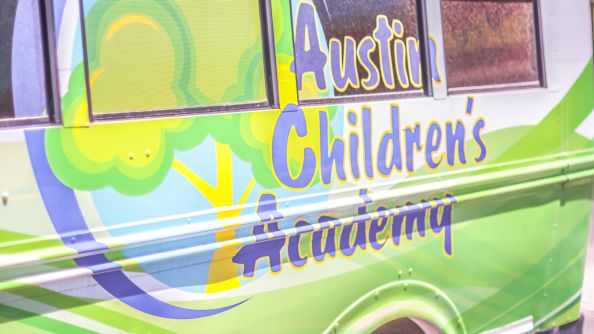
You’re in the playground watching your five-year-old race with the crowd like he’s running with wolves. Your three-year-old is collecting acorns and quietly sorting them by size. Meanwhile, your four-year-old has drawn chalk runes on her legs and is now dancing to music only she can hear.
Engaged, contemplative, or free-spirited, your children are very different. It’s difficult to imagine one school that will nurture their individual temperaments. Fortunately, over a century ago, the late Dr. Maria Montessori recognized that not every child learns best sitting quietly with their hands folded on a desk. That’s why she developed the Montessori Method of early childhood education, which embraces a philosophy of learning that recognizes, supports, and harnesses a child’s freedom of spirit and natural eagerness to learn.
Self-Directed Education
There’s no “drill-and-kill” mindless practice in a Montessori classroom. Guided by teachers, students are given a measure of choice in deciding what they’ll be learning each day. Teachers act not as lecturers but as observers, getting to know each child’s temperament, interests, and developmental needs. They’re trained to recognize when each child is ready to tackle a new concept or skill, in order to effortlessly move him or her through the curriculum.
Uniquely-Designed Learning Materials
Montessori schools use learning materials that are created with Dr. Montessori’s philosophy in mind. Built to attract attention, these colorful, well-made toys make even grown-ups want to sit on the floor and play. Developed to teach one skill at a time, often at different levels, many of these materials are self-correcting. When children recognize their own mistakes and are encouraged to take the initiative to fix the errors, their confidence and self-assurance grows.
Check out some of these clever materials: https://amshq.org/Montessori-Education/Introduction-to-Montessori/Montessori-Learning-Materials
Multi-Age Grouping
Social and emotional development is just as important as academics in a Montessori school. Classrooms typically embrace a three-year age range. Younger students can reach out for the support of their older classmates as well as their teacher. As they age into older students themselves, they learn to become helpmeets and mentors to their new, younger classmates. Learning to play nice, peacefully resolve conflicts, and respect peers are skills that will support them far into the future.
Confidence, initiative, and collaboration are three skills that every child needs in a swiftly changing twenty-first-century world. Just ask some successful and grateful graduates of Montessori schools, like Larry Page and Sergey Brin, the founders of Google.
















